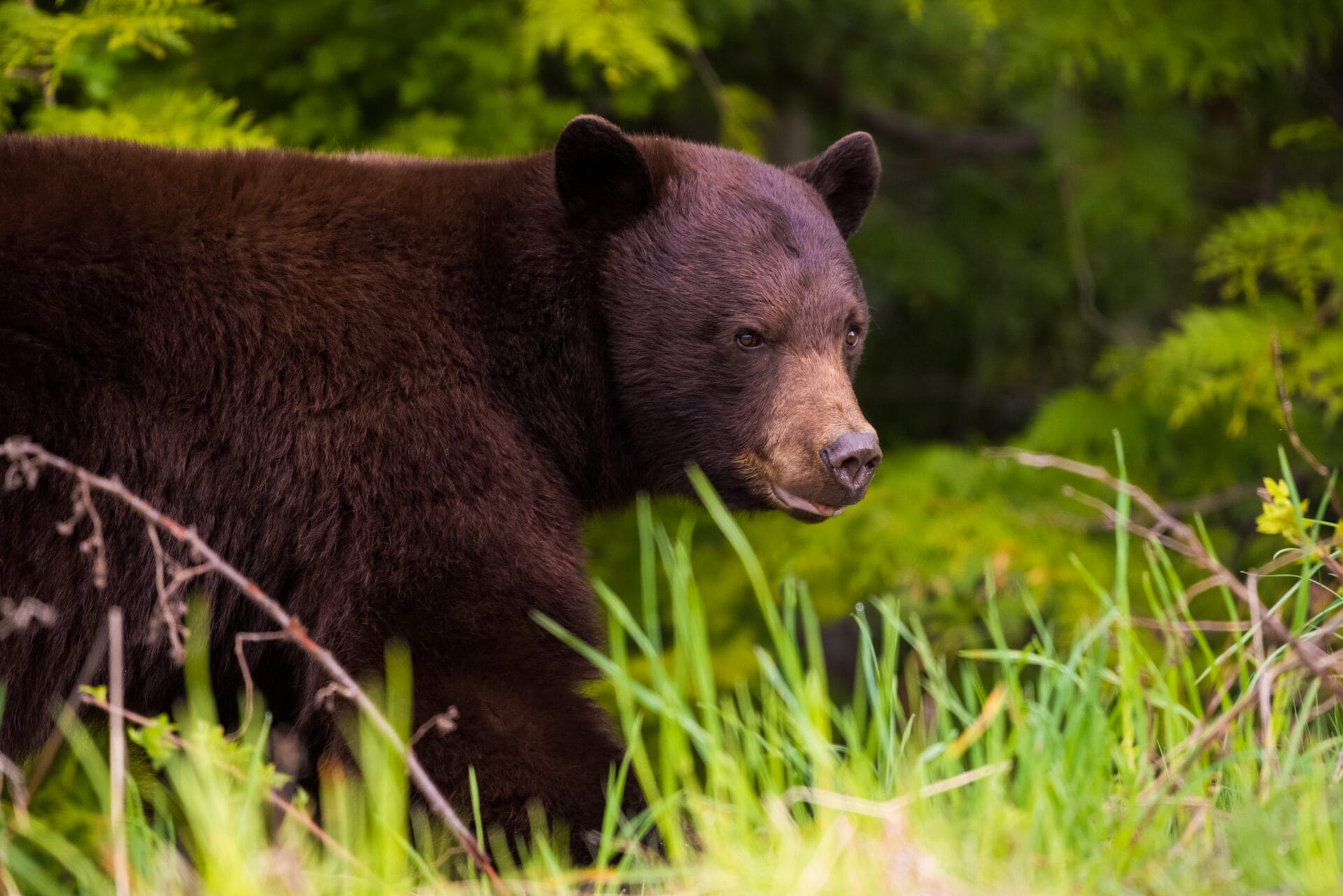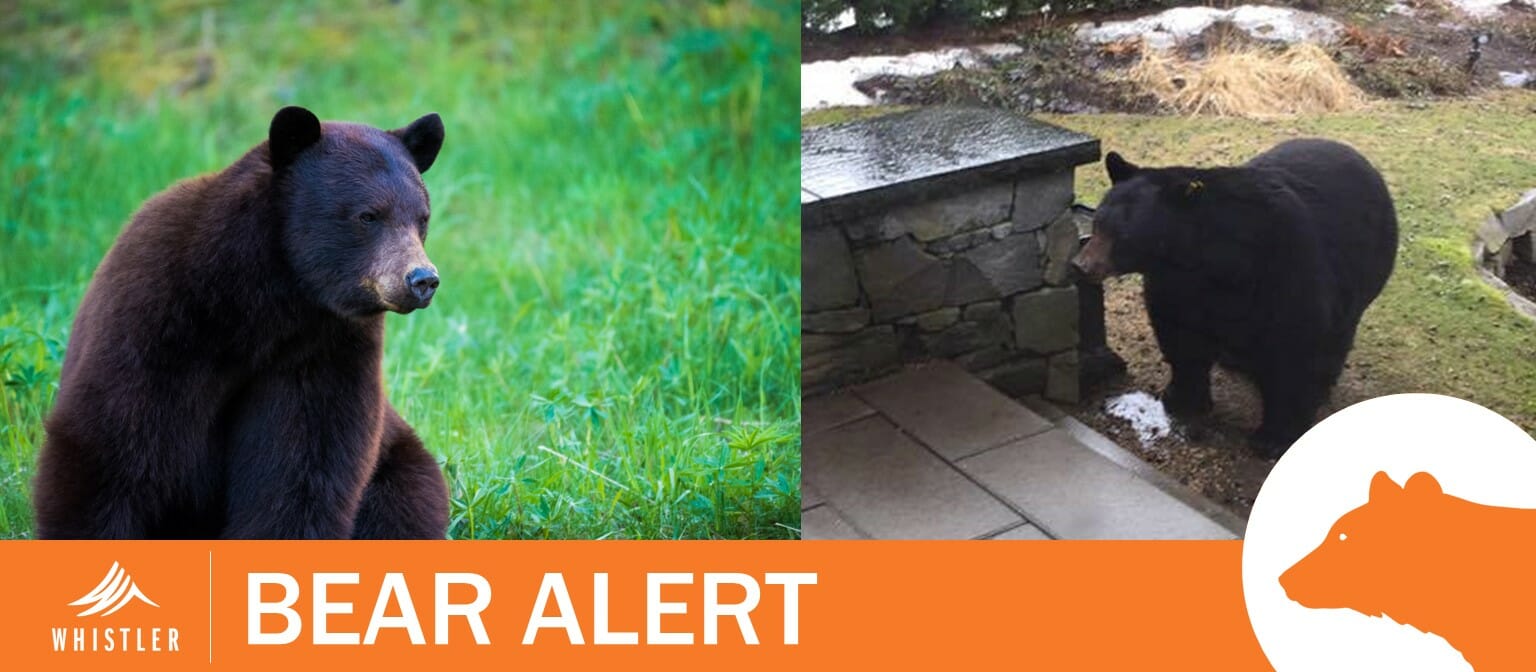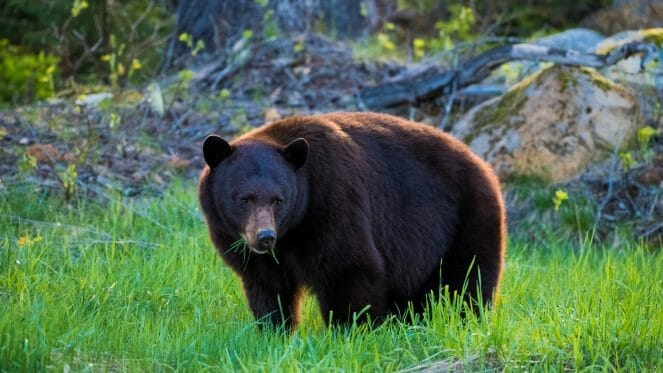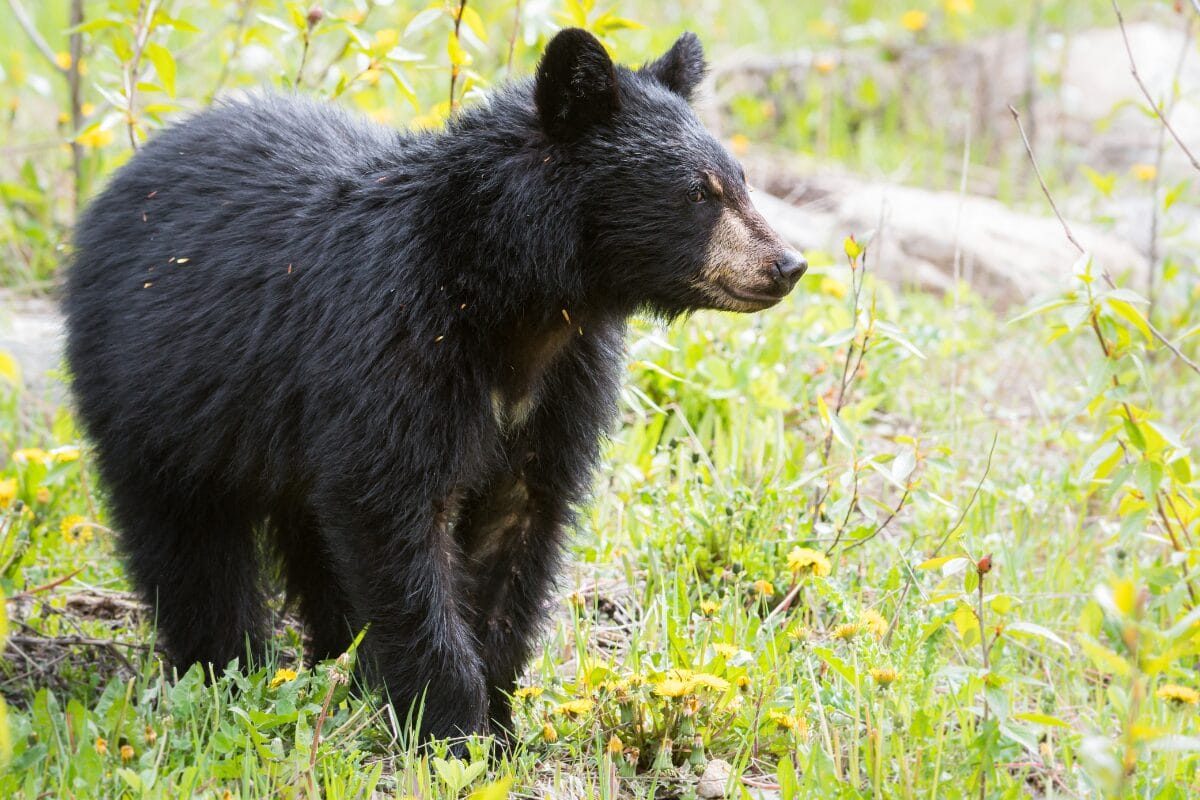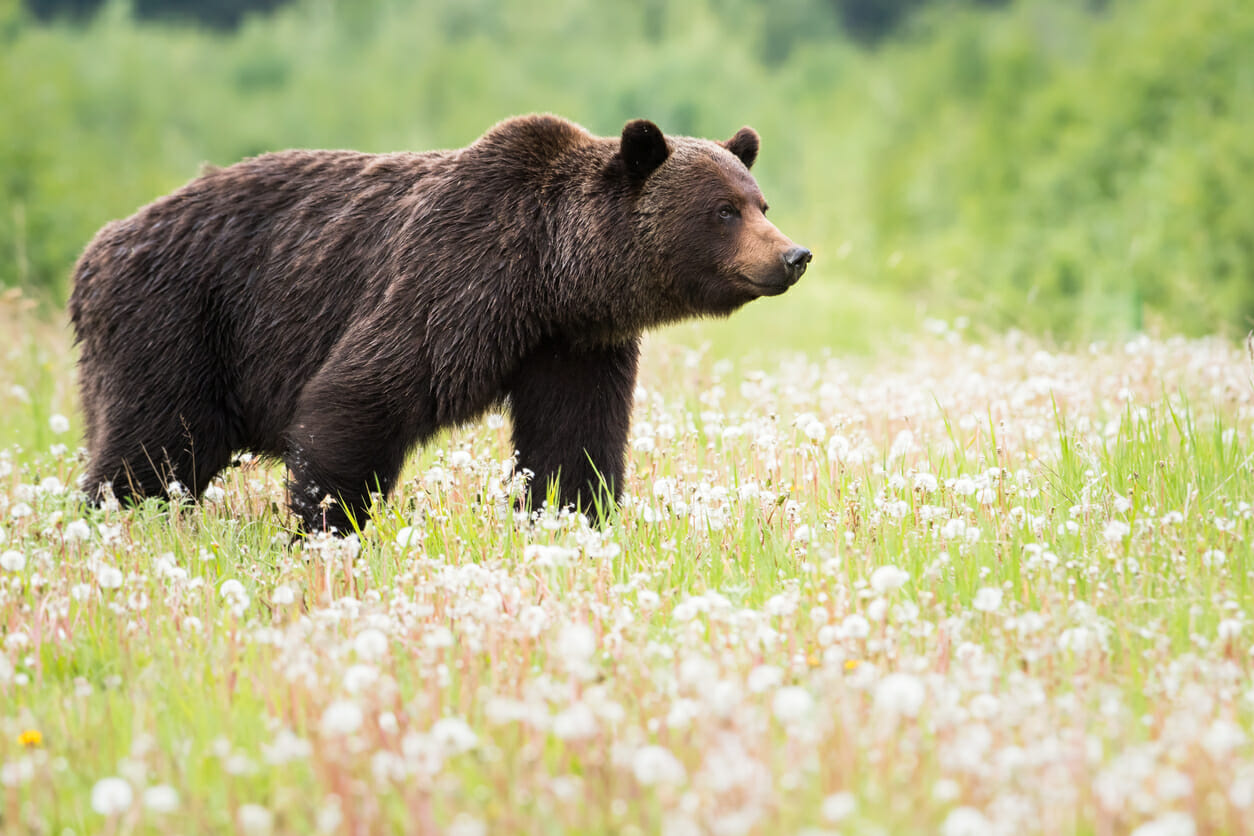Whistler is a Bear Smart Community. Municipal staff provide education on how to safely live with wildlife and our Bylaw Services Department shares safe bear management practices, like minimizing wildlife attractants, with the public. Join us for one of our Bear Smart educator’s regular public speaking engagements for tips on how to live and play to keep animals, habitats, and neighbourhoods safe.
Our social channels Facebook and Instagram provide helpful tips about living with black bears and grizzly bears as well as other details on local plants, animals, insects, and reptiles. Our program also does door-to-door education in neighbourhoods, educational initiatives, presentations in workplaces and schools, camps and daycares, and also works with community partners to update bear policies and strategies.
Safe wildlife management
Human-wildlife conflict is handled under the provincial Ministry of Environment and Climate Strategy by the Conservation Officers Service (COS).
Once bears learn they can get food from humans, they become persistent in their attempts to access this resource. This behaviour often escalates, which in turn makes the animal a public safety risk and can lead to its death. The best way to protect resident bears is to manage the wildlife attractants available to them, including garbage, recycling, compost and plants. We ask residents and visitors to report poorly managed attractants to our Bylaw Services department.
If you see a bear or cougar in a residential area, please reported it to the COS through the Report All Poachers and Polluters (RAPP) line: 1-877-952-7277, text 7277.
Wildlife Alerts
The COS shares wildlife alerts with the RMOW to keep the public informed of sightings and incidents. Wildlife alerts are placed on this website at whistler.ca/bear and our social media channels from Monday to Friday, 8 a.m. to 5 p.m.
Communication on urgent incidents which threaten community safety are handled by the Whistler RCMP and the Conservation Officer Service. For additional information about a wildlife event, please contact the COS.


